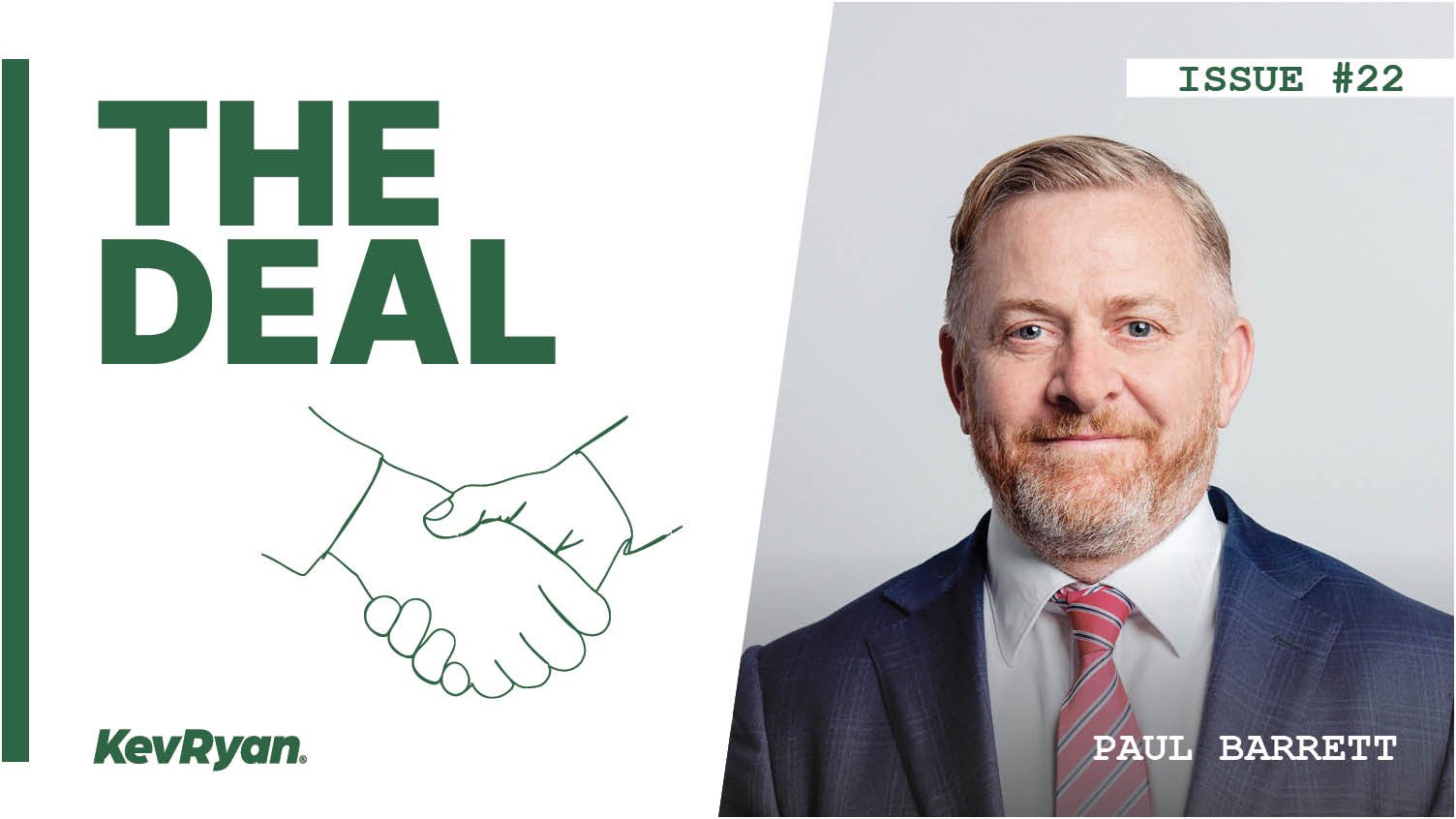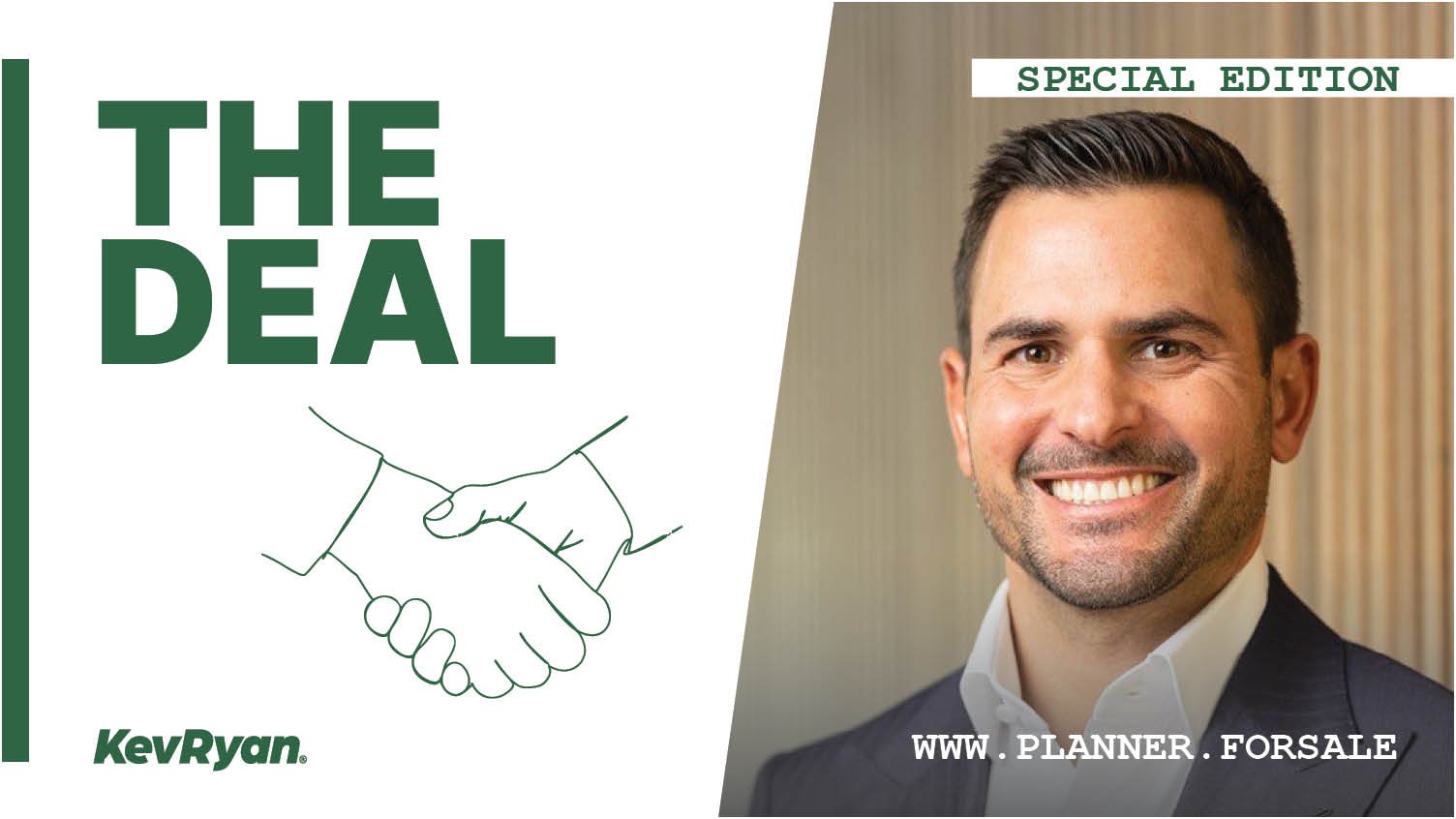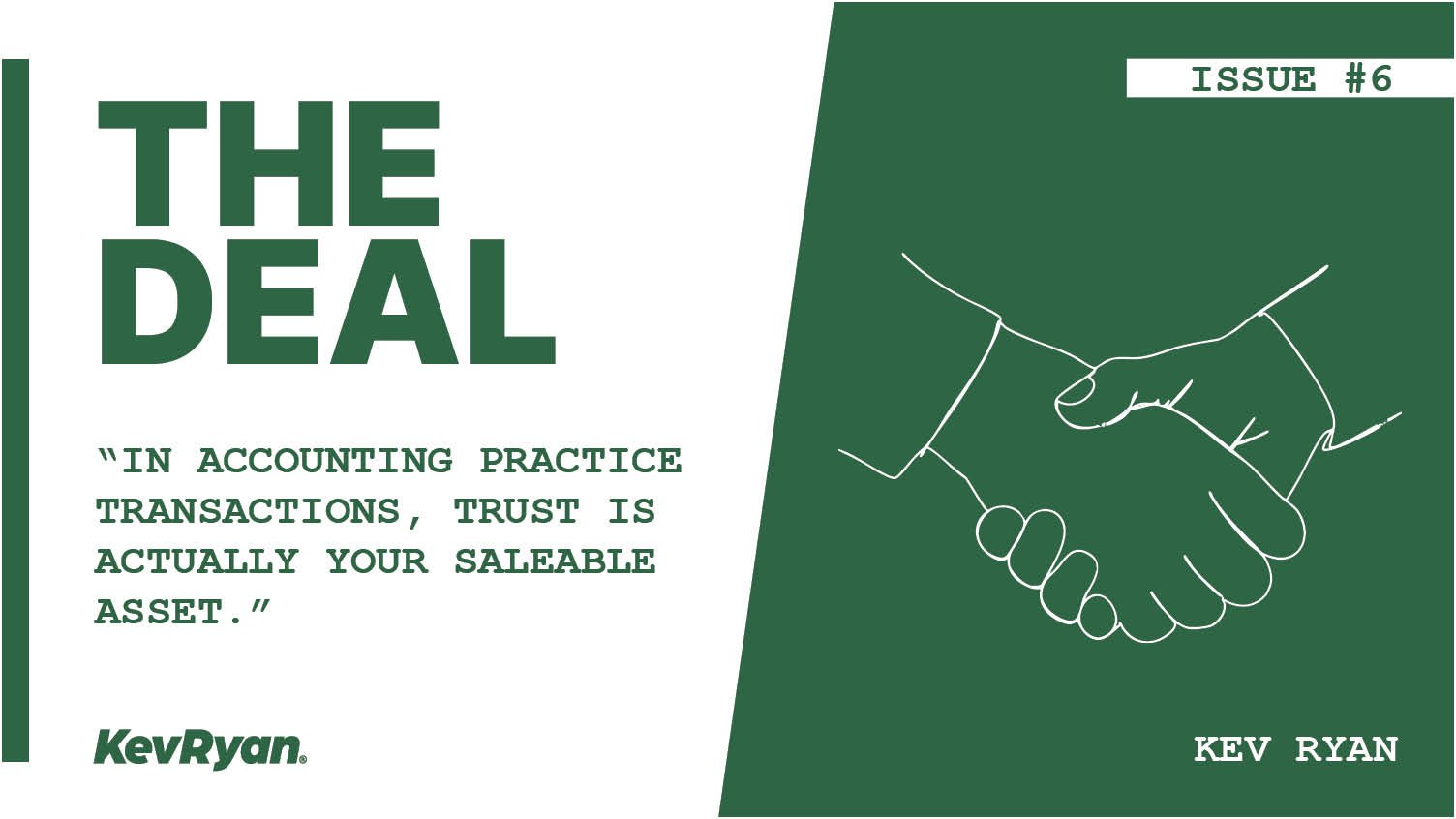Readiness for sale - some basics.
Whilst the items to consider in this issue are tailored more towards Sole Practitioners, which in Australia represent the majority of the tax accounting industry, I’m hoping they will give all owners of accounting businesses contemplating future exits something to think about when preparing themselves for sale.
There are a myriad of “ready for sale” factors to list, consider and decide upon, but to ensure this issue is only a few minutes read, here are half a dozen snippets of basics to think about - three personal items and then three operational items.
Personal…
Mindset
A deal won’t get done if you’re not committed to an actual transaction. You can’t be half pregnant. At the outset you need to simply decide. Spending too long umming and ahhing and not taking action might just see you end up with no asset left to sell. You simply must get yourself into a state of “willingness to transact”.
Exit and retirement planning will bring up some very real emotions to confront which is why people avoid the decision making. Seek counsel, start talking. Gain thoughts and feedback from your life partner, your kids perhaps, good friends (one in business, one who is not). Prepare yourself and get into the right transaction mindset.
Finances
Might seem a funny item to mention to people who deal with finance matters all day every day, but I’m often surprised to start the ready for sale process with a client only to find that they have either not got themselves financial structured correctly and or can’t actually financially afford to exit.
If you’re not managing it well don’t be afraid to engage a wealth advisor. Know your financial freedom point and determine if the sale proceeds will get you to where you need to be.
Life After Work
This is a big one. I started working in this space more than a decade ago and I quickly realised that the psychology piece for exiting practitioners was a very real and very important piece of the transaction puzzle needing attention and careful handling. I could see clients asking themselves, “but if I sell who will I be after all this time as a trusted person to a close group of clients (some undoubtably now friends) I’ve serviced for all this time.” Regularly I see this massive identity crises that clients are facing and having to deal with when we are working on their exit and retirement planning.
There are trained professionals who can help you establish a picture of what life after work can look like and we encourage our clients to speak with them.
Operational…
Pricing, billing and getting paid.
So a few parts to this discussion point, but they are kind of interrelated. If you’re exiting properly, by that I mean you are preparing for sale years in advance, you’ll have time to get this critical operational function right.
If you’re operating a smaller firm your likely acquirer is a bigger one who undoubtedly has higher charge out rates. Start to move the needle. Increasing the average hourly recoverable rate will work in your favour come time to transact.
No point having solid charge out rates if no one is paying the fees however. Re engineer your accounts receivable function to ensure debtor days are as sharp as you can get them. Bill regularly and where possible monthly in advance.
Getting paid has never been simpler with the various payment technologies available these days. Get techy and utilise payment systems that make it easy for clients to pay and hard for them not too!
Employment Contracts
In readying yourself and the business for sale a big factor is your team and in the current environment, the war on talent has seen team move up many acquirer’s acquisition wish list.
I suggest to all clients to dial in HR professionals and make sure quality employment contracts are in place. These need to deal with the manner in which team are not only remunerated and reward but importantly restrained. Quality employment contracts that address restraints will give the savvy acquirer at least some risk management comfort around your senior manager not walking out the door with clients they’ve purchased.
Who the Clients Deal With
If every client has to deal with you, the value of your goodwill (the asset you are selling) is diminished. There is simply too great a key person risk.
Start to bringing in your team on client discussions. Ensure the client knows that they do not have to speak to you in the first instance. Educate clients and display to them that your team are more than qualified to handle enquiry. Have team members present in as many meetings as possible. You need your asset (the client list) tied to the firm, not to you.
I hope there is something in the above for you to think about. Of course touch base if you’d like to chat.
Cheers, Kev
MORE ISSUES































